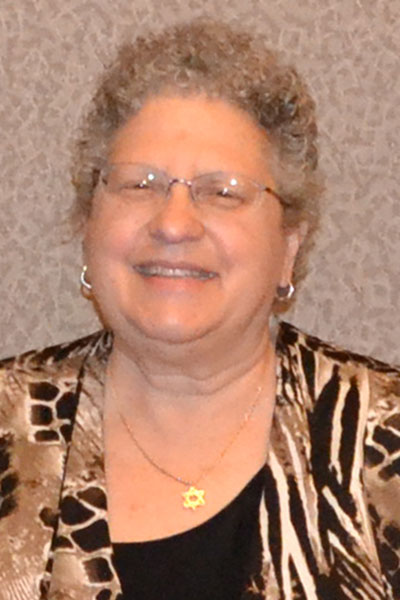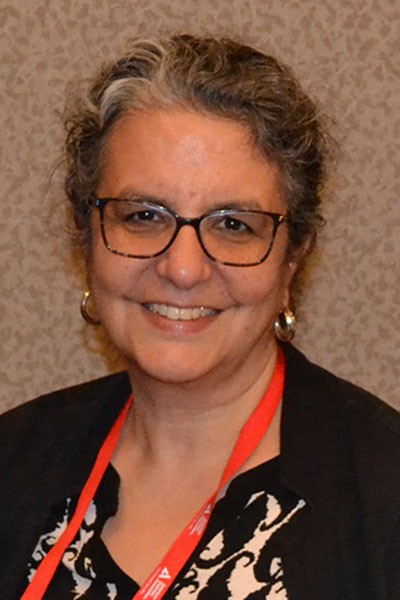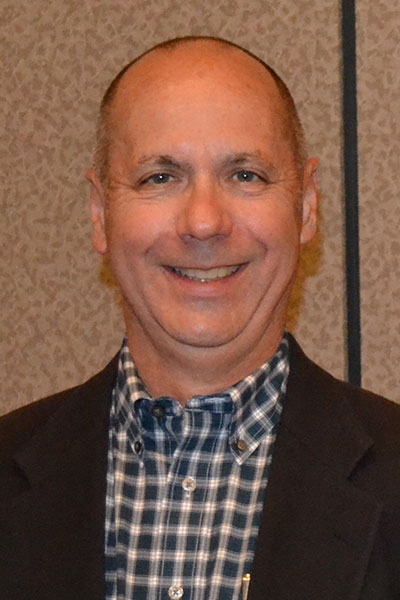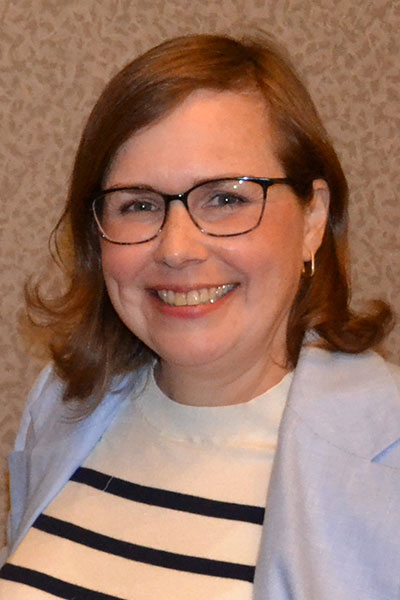Last year, the CD3-directed monoclonal antibody teplizumab became the first U.S. Food and Drug Administration (FDA)-approved drug for the delay and prevention of type 1 diabetes. A special panel discussion at the 83rd Scientific Sessions examined the promise and the challenges associated with the approval of teplizumab for the research community, clinical practice, and patient advocacy.

The session, The New Normal—Perspectives on Treatment and Trials as Immunotherapies Enter the Type 1 Diabetes Clinical Landscape, can be viewed on-demand by registered meeting participants at ADA2023.org. If you haven’t registered for the 83rd Scientific Sessions, register today to access the valuable meeting content through August 28.
“Some of the clinical challenges associated with approving teplizumab include identification of appropriate treatment candidates, which can be difficult at times, and difficulty operationalizing administration, as it is a complicated drug to administer,” said Session Chair Ellen W. Leschek, MD, Program Director in the Division of Diabetes, Endocrinology, and Metabolic Diseases at the National Institute of Diabetes and Digestive and Kidney Diseases (NIDDK) and Project Officer at Type 1 Diabetes TrialNet.
“Research challenges associated with the approval of this drug include the difficulty in identifying people at stage 2 diabetes,” she said. “Having approved treatment means that comparison and combination trials are needed, requiring more participants. These might be hard to enroll and might make public-private collaborations more difficult.”

Kevan C. Herold, MD, the C.N.H. Long Professor of Immunobiology and of Medicine, Yale School of Medicine, and Chair, Type 1 Diabetes TrialNet, said that among current research questions being explored is whether there are baseline metabolic or immunologic markers that can identify people likely to respond to teplizumab.
“We’ve looked at the ratio of proinsulin to C-peptide, and proinsulin is a good measure of beta-cell stress in individuals with pre-diabetes and individuals with diabetes,” Dr. Herold said. “Basically, those individuals who have high ratios of proinsulin to C-peptide progress rapidly to diabetes; whereas those with low ratios at the time of study entry have progressed much slower. And when we do a multivariate analysis of the time of progression, we see that the effects of teplizumab are greatest, interestingly, in those who have the high proinsulin-to-C-peptide ratio.”

Linda DiMeglio, MD, MPH, Professor of Pediatrics and Chief of Pediatric Endocrinology, Indiana University School of Medicine, and Vice Chair, Type 1 Diabetes TrialNet, said a major research challenge moving forward will be increasing diversity in study participants and identifying at-risk populations.
“It is going to be essential to engage the entire spectrum of people who develop or are at risk for type 1 diabetes in prevention research, and we’re actively working within TrialNet to find and engage more non-white and Hispanic participants in our trials,” Dr. DiMeglio said. “We’re actively looking at opportunities where we can be synergistic with other groups and continuing to develop combination trials and strategies to reach out to underrepresented populations. There’s a lot of work to do, but we are committed to moving forward and innovating in this ‘new normal’ environment.”

Bryce A. Nelson, MD, PhD, Associate Professor of Pediatrics and Chief of Pediatric Endocrinology at VCU Health and the Children’s Hospital of Richmond, offered a clinical practice perspective of the challenges in making teplizumab available for patient administration.
The initial challenge, he said, is operationalizing the infusion program in your institution or practice and developing patient follow-up protocols.
“Right now, we’ve had two patients approved and we are planning to do five days in our infusion center and nine days via home health, but our plan moving forward is to do all 14 days of treatment in our infusion center,” Dr. Nelson said. “We’ll be reviewing CGM (continuous glucose monitoring) data and following them up at three and six months, and then every six months thereafter.”

Kurt J. Griffin, MD, PhD, Associate Professor of Pediatrics at University of South Dakota Sanford School of Medicine and Sanford Children’s Specialty Clinic, discussed some of the unique practice challenges of implementing a teplizumab program in a health system serving a mostly rural population covering a large geographic area.
“Trying to adapt everything that we’re doing for type 1 diabetes—clinically, screening, monitoring, etc.—into a large remote area is a little bit of a challenge. A lot of families are getting their care in very small towns where the clinic may be staffed by a single nurse practitioner,” Dr. Griffin said.
Among the barriers are the particularly long distances patients and their families may have to travel for treatment, he noted.

“Some of the people can take advantage of Ronald McDonald House, for example, when they’re coming from hours away, and they can just stay there for the two weeks and then go home. That assumes the family can take two weeks of time away from the farm or away from work,” Dr. Griffin said. “Where safe, we may at some point be able to arrange home treatment, but I think that’s currently beyond my level of tolerance for safety.”
As someone living with type 1 diabetes, patient advocate Annie Shultz, Director of Marketing and Communications, Benaroya Research Institute, Virginia Mason Medical Center, shared the excitement of the promise of teplizumab and hopes it inspires continued research.
“We need sustained long-term funding into research and cure. I hope that we come together and that we use the approval of teplizumab as the stepping stone to the next place for research and where we’re going,” Shultz said. “Management of type 1 diabetes is difficult, but I hope that we use this as a proof point that we can beat it. I really do think that we can.”

